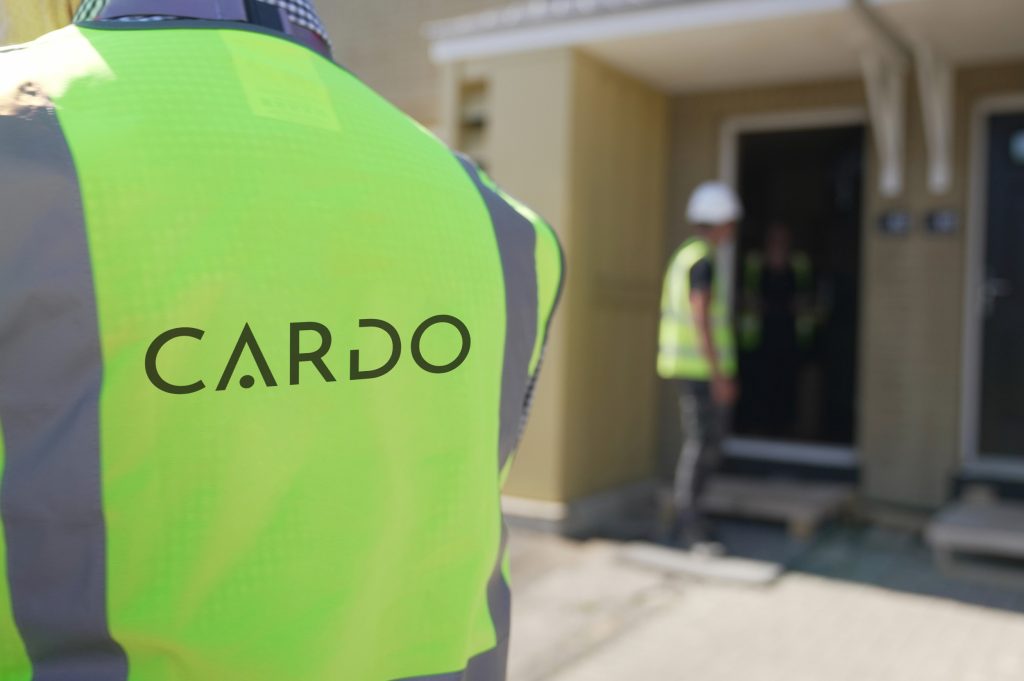In the evolving landscape of UK housing, local authorities and housing associations across England and Wales face mounting pressure to deliver high-quality, cost-effective services that meet the needs of tenants and comply with increasingly stringent regulations.
One of the most effective ways to meet these demands is through a proactive maintenance strategy, often delivered under a total asset management model. At the heart of this approach is planned maintenance in social housing—a service model that prioritises long-term sustainability, reduces emergency repair costs, and significantly improves tenant satisfaction.
This article explores how Cardo Group is helping housing providers take a proactive stance through comprehensive maintenance programmes that integrate compliance, responsive repairs, and voids management into one streamlined delivery model.

Historically, many housing providers have operated in a reactive mode—responding to tenant complaints or emergencies as they arise. While responsive repairs remain essential, this reactive-only strategy often leads to higher costs, more disruption, and lower tenant satisfaction.
In contrast, proactive maintenance focuses on anticipating issues before they escalate. Through scheduled inspections, data-led forecasting, and integrated service delivery, providers can reduce the volume of reactive work and increase the lifespan of building components.
Cardo Group supports this strategic shift by designing planned maintenance frameworks that are tailored to housing stock condition, resident needs, and regulatory requirements.
Planned maintenance in social housing involves the scheduled servicing, upgrading, or replacement of key building components to ensure properties remain safe, habitable, and compliant.
This typically includes:
Unlike ad-hoc repairs, planned maintenance is delivered on a fixed schedule—often part of a multi-year capital investment plan. This allows housing providers to control costs, minimise tenant disruption, and maintain asset value.
A key strength of Cardo Group’s service model is its ability to integrate planned maintenance with responsive repairs and voids management, creating a unified delivery system under one contract.
This holistic approach offers several benefits:
By unifying all aspects of maintenance, Cardo Group helps clients reduce administrative overhead while improving service quality across the board.
In today’s regulatory environment, compliance is not optional. Housing providers must meet numerous legal and safety standards—including gas servicing, fire safety, electrical testing, and building regulations.
Planned maintenance ensures that these requirements are built into the service schedule, reducing the risk of missed deadlines or non-compliance penalties. Cardo Group provides full compliance monitoring as part of its asset management strategy, including:
Using real-time compliance dashboards and automated alerts, Cardo Group ensures that nothing slips through the cracks.
An often overlooked aspect of planned maintenance is voids management—the process of preparing empty properties for new tenants. Cardo Group incorporates voids into its proactive model by:
This approach not only improves turnaround times but also ensures that new tenants move into high-quality homes that meet modern standards. The result is improved tenant retention and lower long-term repair costs.
To truly maximise the benefits of proactive maintenance, housing providers must take a data-driven approach. Cardo Group utilises advanced asset management systems to:
This level of insight allows for smarter investment decisions and a more strategic approach to housing stock improvement. With comprehensive data, Cardo Group works with clients to develop long-term asset management plans that are both financially and operationally sustainable.
Ultimately, the success of any maintenance programme is measured by the experience of the tenants. Delayed repairs, poor communication, and disruptive works can quickly erode trust and increase complaints.
Cardo Group addresses this through a tenant-first approach that includes:
This model has led to improved tenant relationships, higher satisfaction scores, and reduced complaint volumes across the contracts Cardo Group delivers in England and Wales.

In addition to improving service outcomes, planned maintenance also plays a crucial role in advancing the sustainability agenda. By upgrading inefficient systems and improving building performance, housing providers can:
Cardo Group incorporates energy efficiency improvements into its planned works programme, helping clients align with broader UK housing and climate goals.
In practice, Cardo Group’s total asset management strategy combines:
This integrated model creates a complete feedback loop that continuously improves service, reduces risk, and enhances long-term asset value.
For housing providers across England, Wales, and the broader UK housing sector, the time to invest in planned maintenance in social housing is now. Proactive strategies not only deliver better homes for tenants—they also reduce risk, improve compliance, and lower long-term costs.
Cardo Group’s holistic asset management model demonstrates that with the right systems, expertise, and approach, maintenance can become a driver of quality, sustainability, and tenant trust.
Looking to improve property performance and tenant satisfaction across your housing portfolio?
Partner with Cardo Group to implement a data-informed, fully compliant planned maintenance strategy. Our integrated service model—spanning responsive repairs, compliance monitoring, and voids management—supports housing providers throughout England, Wales, and the UK in delivering safer, more sustainable homes.
Discover how Cardo Group’s proactive maintenance approach transforms UK housing through strategic asset management and community-focused delivery.